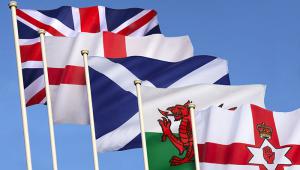So we have a Conservative government for the next five years. Or do we?
There’s already been speculation that, with such a small majority and such big issues and challenges on the horizon, the Tories might not hang on for the full five years as a majority government.
This is wishful thinking for some, and woolly thinking by others. David Cameron has an effective 16 MP majority (once you factor in the non-voters: the Speaker, three deputy speakers and four Sinn Féin MPs). In the last parliament there were 21 byelections, mostly in Opposition seats. It would take nine lost byelections in Tory seats for them to lose their majority – which is very unlikely.
One other thing we know with some certainty is this will not be a five-year Cameron government. If he is to stand down in good time before the next general election to allow his successor to settle in, it’s hard to see him remaining beyond 2019 or maybe 2018. Some are already speculating he might go as early as 2017, after the European referendum.
When Cameron does decide to stand down, expect non-stop speculation and manoeuvering by possible successors and their ‘friends’ until he does. As Tony Blair found, power drains away quickly when people know you’ll soon be gone.
Talking about Europe, there is more than one way to lose a majority – as John Major found out in 1992-97. It is hard to see the Tory party emerging unscathed from an EU referendum, or even the next two years of attempted negotiations. Cameron’s Europhobic backbenchers will be watching his every move like hawks and, as the last parliament saw, they are only too willing to rebel. The post-2010 intake has been especially prone to both Euroscepticism and rebellion.
Apart from his own leadership position and Europe, there are two other huge elephants in the room. These are ‘the deficit’ and Scotland, both of which present massive challenges.
The impetus towards Scottish independence can only have been accelerated by the SNP’s 56-seat harvest north of the border. Whatever they are saying now – and they are desperately trying to seem statesperson-like – the pressure from the Nationalists’ base to re-open the independence question will be immense. (They also have a potential party management problem – with 56 MPs and Alex Salmond in London and 64 MSPs and Nicola Sturgeon in Edinburgh, there is plenty of scope for tensions to emerge – ‘what you see depends on where you sit,’ as they say.)
Controversy over Scotland will also ensure that English devolution – either to England as a whole or to city-regions like Manchester – is going to remain high on the agenda.
So we come, finally, to the big issue for public services and welfare – the deficit. If the Tories are to really pursue the targets they set out in the election, including NHS spending and tax reductions, then the non-NHS public services and welfare benefits are going to take a huge pounding – much greater than, and on top of, the cuts already made during the coalition. None of the challenges of an ageing population, economic restructuring, population movements, an increasing number of school-age kids, and a host of others are going away. Many experts have warned that cuts on the scale proposed are ‘challenging’ to put it mildly.
As the fog of war subsides it is pretty clear we – and the Conservative government – are in for ‘interesting times’. And remember that the Chinese saying is actually a curse, ‘may you live in … ’ a period of intense disharmony. It is doubtful the UK will emerge from it as one nation – in any sense of that term.











